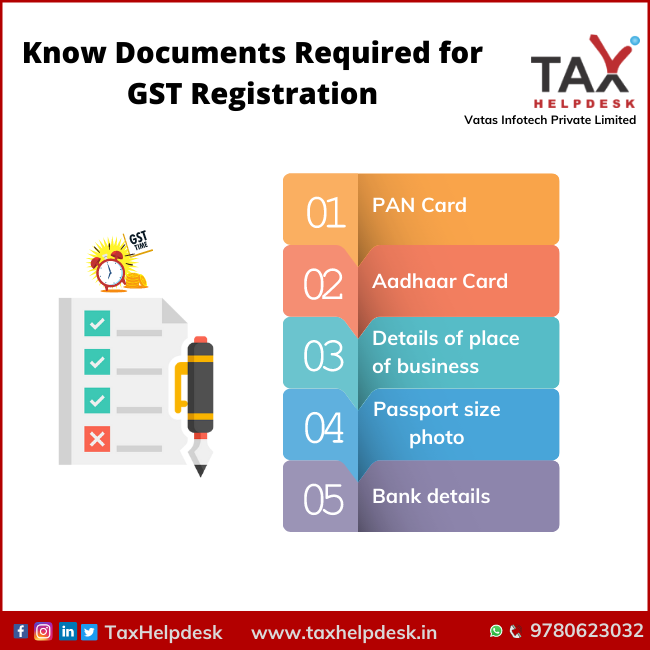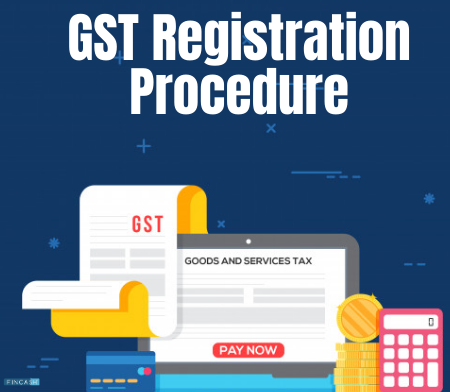Improving Your Singapore GST Registration: An Extensive Method
Improving Your Singapore GST Registration: An Extensive Method
Blog Article
Browsing the Intricacies of GST Registration: Expert Tips and Best Practices for Smoother Conformity
From decoding enrollment requirements to utilizing technical devices for structured processes, the journey in the direction of smoother GST conformity is nuanced and diverse. Remain tuned to uncover vital methods and understandings that can help services guide with the complexities of GST enrollment with finesse and confidence.
Comprehending GST Enrollment Requirements

In enhancement to turn over limits, companies participating in interstate sales or offering taxed solutions might additionally be required to register for GST, also if their turnover is listed below the recommended restriction (Singapore GST Registration). Comprehending these requirements and thresholds is vital to avoid fines and ensure smooth operations within the lawful structure
Additionally, businesses should gather and prepare the essential documents, such as proof of identification, address, organization consolidation, and financial institution account details, before starting the GST enrollment procedure. Falling short to give precise info or meet the registration target dates can lead to fines or various other lawful effects. Services must stay notified regarding the specific GST enrollment demands appropriate to their operations to keep conformity and stay clear of prospective problems.
Organizing Crucial Documents
Businesses starting the GST registration process need to thoroughly assemble and organize the important paperwork needed for submission. The crucial files typically needed for GST enrollment include proof of company enrollment or address, consolidation and identity evidence of business owners or partners, bank account details, evidence of principal workplace, and authorization types. Making certain that these files are readily offered and arranged can improve the registration procedure and protect against delays or denials.
To properly organize important documents, services need to produce a centralized system for saving and categorizing the called for documents (Singapore GST Registration). Using digital storage space solutions can aid preserve easy accessibility and guarantee that documents are safely stored. Furthermore, establishing a checklist of all needed documents can function as a practical device to track what has actually been collected and what is still required for entry

Leveraging Technology for Efficiency
Enhancing functional efficiency with technical integration is critical for modern services navigating the complexities of GST enrollment. One of the essential methods innovation can assist in GST registration is with the usage of automated software application solutions.
In addition, innovation can promote seamless interaction with tax obligation authorities. Online websites and interaction devices allow businesses to send files, solve queries, and receive updates in a more effective fashion. This not only accelerates the enrollment process however also assists in preserving transparent and dependable interaction with the appropriate authorities.
In addition, cloud-based storage space options supply a safe and secure system for organizations to store and access their monetary data, ensuring conformity with GST record-keeping requirements. By centralizing information storage space and automating processes, businesses can improve their overall effectiveness and precision in GST registration procedures.
Proactive Compliance Surveillance

To make certain reliable aggressive conformity monitoring, companies must develop robust internal controls, conduct routine audits, and take advantage of automation devices for real-time tracking of GST purchases. Regular training sessions for workers on GST compliance demands can also help in creating a society of compliance within the company. Additionally, engaging blog with tax obligation professionals or specialists can offer valuable insights and advice on navigating complex GST guidelines.
Involving With Specialist Specialists
Involving skilled tax specialists can dramatically boost a firm's understanding and compliance with detailed GST laws. Expert consultants bring a wide range of knowledge and experience to the table, aiding businesses navigate the intricacies of GST registration with simplicity. By leveraging their know-how, firms can make certain exact filings, minimize the risk of errors, and stay updated with the most up to date regulatory adjustments.
When involving with professional consultants, it is important to select professionals with a strong track record in GST conformity (Singapore GST Registration). Try to find experts that have a deep understanding of the pertinent laws and guidelines, as well as experience collaborating with businesses in your industry. Efficient interaction is crucial in this partnership, so make certain to plainly define your assumptions and develop regular touchpoints to discuss development and deal with any type of problems
Additionally, specialist professionals the original source can supply valuable insights and advice on optimizing your tax obligation technique, recognizing prospective cost-saving possibilities, and streamlining your conformity processes. Generally, spending in expert working as a consultant services can go a long way in making sure smoother GST conformity and preventing costly blunders.
Final Thought
Finally, browsing the intricacies of GST enrollment calls for an extensive understanding of the needs, organization of essential paperwork, leveraging technology for effectiveness, positive conformity monitoring, and involvement with specialist consultants. By following these ideal techniques, companies can guarantee smoother compliance with GST laws and avoid potential charges or penalties. It is necessary to remain informed, proactive, and attentive in taking care of GST enrollment to keep compliance and maintain financial honesty.
To make sure compliance with tax obligation guidelines, businesses have to extensively comprehend the detailed needs for GST enrollment. Goods and Solutions Tax Obligation (GST) is a value-added tax imposed on most goods and services in a country, making it critical for companies to sign up for GST to prevent lawful repercussions.In addition, businesses have to collect and prepare the necessary paperwork, such as evidence of identification, address, company unification, and bank account details, before launching the GST enrollment process. Businesses should remain notified concerning the specific GST registration requirements appropriate to their procedures to maintain compliance and avoid possible problems.
The key documents typically required for GST enrollment consist of evidence of organization registration or identity, incorporation and address proofs of the company proprietors or companions, financial institution account information, evidence of principal area of organization, and consent forms.
Report this page